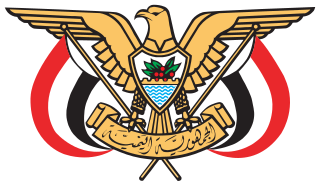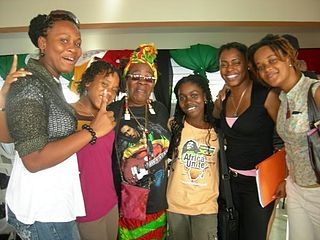Related Research Articles
The human rights situation in Cambodia is facing growing criticisms both within the country and from an increasingly alarmed international community. After a series of flagrant violations against basic human rights a feeling of incertitude regarding the direction the country is emerging, sometimes comparing the situation to a newborn Burma.

Japan is a constitutional monarchy. The Human Rights Scores Dataverse ranked Japan somewhere in the middle among G7 countries on its human rights performance, below Germany and Canada and above the United Kingdom, France, Italy, and the United States. The Fragile States Index ranked Japan second last in the G7 after the United States on its "Human Rights and Rule of Law" sub-indicator.
Human Rights in Mexico refers to moral principles or norms that describe certain standards of human behaviour in Mexico, and are regularly protected as legal rights in municipal and international law. The problems include torture, extrajudicial killings and summary executions, police repression, sexual murder, and, more recently, news reporter assassinations.

According to the U.S. Department of State's annual report on human rights in Mali for 2003, Mali's government generally respects the human rights of its citizens and observes relevant constitutional provisions and prohibitions.

Human rights in Yemen are seen as problematic. The security forces have been responsible for torture, inhumane treatment and even extrajudicial executions. In recent years there has been some improvement, with the government signing several international human rights treaties, and even appointing a woman, Dr. Wahiba Fara’a, to the role of Minister of the State of Human Rights.

Human rights in Jordan are similar to or better than those elsewhere in the Middle East. Human Rights Watch reported in January 2018 that although recently there have been far-reaching reforms of the laws and regulations in the country, abuses against basic rights such as freedom of expression persisted.

Human rights in Austria are generally respected by the government; however, there were problems in some areas. There were some reports of police abuse and use of unjustified force against prisoners. Antisemitic incidents, including physical attacks, name-calling, property damage, and threatening letters, telephone calls, and Internet postings occurred during the year. There was some governmental and societal discrimination against fathers, Muslims and members of unrecognized religious groups, particularly those considered "sects". There were incidents of neo-Nazi activity, rightwing extremism, and xenophobia. Trafficking in women and children for prostitution and labor also remained a problem.

Concerns about human rights in Chile include discrimination against indigenous populations; societal violence and discrimination against women, children, and lesbian, gay, bisexual, and transgender (LGBT) people; child labor; and harsh prison conditions and treatment. Additional human rights concerns in the country include use of excessive force and abuse by security forces, isolated reports of government corruption, and anti-Semitism. Authorities generally maintain effective control over the security forces. However, security forces occasionally commit human rights abuses. The government generally takes steps to prosecute officials who commit abuses. Nevertheless, many human rights organizations contend that security officials accused of committing abuses have impunity.

Human trafficking is the trade of humans for the purpose of forced labour, sexual slavery, or commercial sexual exploitation.
The state of human rights in Qatar is a concern for several non-governmental organisations, such as the Human Rights Watch (HRW), which reported in 2012 that hundreds of thousands of mostly South Asian migrant workers in construction in Qatar risk serious exploitation and abuse, sometimes amounting to forced labour. Qatar is an authoritarian and de facto absolute monarchy under the House of Thani. Qatari law also does not permit the establishment of political bodies or trade unions. Awareness of human rights abuses in Qatar grew internationally after Qatar's controversial selection to stage the 2022 FIFA World Cup.

In the United States, human trafficking tends to occur around international travel hubs with large immigrant populations, notably in California, Texas, and Georgia. Those trafficked include young children, teenagers, men, and women; victims can be domestic citizens or foreign nationals.

The human-rights situation in Benin is considered to be generally above average for sub-Saharan Africa.
Trinidad and Tobago is a destination, source, and transit country for women and children subjected to trafficking in persons, specifically forced prostitution, and children and men in conditions of forced labor. Some women and girls from Colombia, Dominican Republic, Venezuela, and Suriname who had been in prostitution in Trinidadian brothels and clubs have been identified as trafficking victims. Trinidadian trafficking victims have been identified in the United Kingdom and the United States. Undocumented economic migrants from the region and from Asia may be vulnerable to forced labor and forced prostitution. As a hub for regional travel, Trinidad and Tobago also is a potential transit point for trafficking victims traveling to Caribbean and South American destinations.
The country of Colombia, South America, has a high prevalence of women and girls who are subjected to trafficking in persons, specifically forced prostitution. These women and girls work within Colombia, and are also sent to sex tourism destinations in other parts of Latin America, the Caribbean, Europe, Asia, and North America, including the United States. The humanitarian crisis in Venezuela has worsened from 2010 to the present, with almost 1.5 million people fleeing from Venezuela to cities throughout Colombia in recent years. Immigrants in major Colombian cities such as Bogotá, Medellín, and Cali find work scarce, and some turn to prostitution as a last resort to feed their families. Within Colombia, some men are found in conditions of forced labor, but the forced prostitution of women and children from rural areas and urban areas remains a larger problem. Individual cases of forced marriage – a risk factor for trafficking – involuntary domestic servitude, and forced begging have been reported. Some children are subjected to forced labor in mines and quarries, in the agricultural sector or as domestic servants. Groups at high risk for internal trafficking include displaced persons, poor women in rural areas, and relatives of members of criminal organizations. Continued armed violence in Colombia has displaced many in rural communities, making them vulnerable to human trafficking. Guerillas and new illegal armed groups have been reported to forcibly recruit children to join their ranks; the government estimates thousands of children are exploited under such conditions. Members of gangs and organized criminal networks may force their relatives and acquaintances, and displaced persons – typically women and children – into conditions of forced prostitution and forced labor, including forced work in the illegal drug trade. Colombia is also a destination for foreign child sex tourists, particularly in coastal cities such as Cartagena and Barranquilla. Migrants from South America, Africa, and China transit Colombia en route to the United States and Europe; some may fall victim to traffickers.
The Democratic Republic of the Congo (DRC) is a source and destination country for men, women, and children subjected to trafficking in persons, specifically conditions of forced labor and forced prostitution. The majority of this trafficking is internal, and much of it is perpetrated by armed groups and government forces outside government control within the DRC's unstable eastern provinces.

Togo in West Africa is currently rated as "Partly Free" by Freedom House.

Human rights in Sierra Leone are in a rather deplorable state, but have improved gradually since the end of its civil war in 2002. Among the major human-rights problems in Sierra Leone today, according to a 2011 U.S. State Department report, are "security force abuse and use of excessive force with detainees, including juveniles; harsh conditions in prisons and jails; official impunity; arbitrary arrest and detention; prolonged detention, excessive bail, and insufficient legal representation; interference with freedom of speech and press; forcible dispersion of demonstrators; widespread official corruption; societal discrimination and violence against women, discrimination based on sexual orientation; female genital mutilation (FGM); child abuse; trafficking in persons, including children; and forced child labor".

Women in Trinidad and Tobago are women who were born in, who live in, or are from Trinidad and Tobago. Depending from which island the women came, they may also be called Trinidadian women or Tobagonian women respectively. Women in Trinidad and Tobago excel in various industries and occupations, including micro-enterprise owners, "lawyers, judges, politicians, civil servants, journalists, and calypsonians." Women still dominate the fields of "domestic service, sales, and some light manufacturing."
Human rights in Saint Vincent and the Grenadines are protected by international conventions and domestic legal framework. The country has ratified a number of United Nations conventions regarding human rights and its constitution guarantees some basic human rights, such as the right to fair trial and freedom from torture. However, clauses guaranteeing socio-economic rights, such as the right to education, and guarding against discrimination are "almost non-existent" in the constitution. There are also no individual complaints procedures for some of the ratified conventions.
Human rights in Slovakia are governed by the laws of Slovakia and overseen by international organizations such as the Council of Europe.
References
- 1 2 3 "How human rights are protected in Trinidad and Tobago". Ministry of the Attorney General. Retrieved 1 March 2015.
- ↑ "Our Human Rights". Trinidad and Tobago Guardian. Retrieved 1 March 2015.
- ↑ "National review TRINIDAD AND TOBAGO" (PDF). Government of the Republic of Trinidad and Tobago. Retrieved 1 March 2015.
- ↑ "Trinidad and Tobago". World Economic Forum. Retrieved 1 March 2015.
- ↑ "Annual Report: Trinidad & Tobago 2013". Amnesty International. Retrieved 1 March 2015.
- ↑ "Country Reports on Human Rights Practices for 2013 Trinidad and Tobago". US Secretary of State. Retrieved 1 March 2015.
- ↑ "World Press Freedom Index 2014" (PDF). Reporters Without Borders. Archived from the original (PDF) on 18 February 2015. Retrieved 4 March 2015.
- ↑ "Freedom of the Press Worldwide in 2014". Reporters Without Borders. Archived from the original on 1 March 2015. Retrieved 4 March 2015.
- ↑ "Trinidad and Tobago". Freedom House. Retrieved 1 March 2015.
- ↑ US State Dept 2022 report
- 1 2 "TRINIDAD AND TOBAGO (Tier 2)" (PDF). US Secretary of State. Retrieved 1 March 2015.
- ↑ "'Human trafficking one of the worst forms of abuse'". Trinidad Express. Retrieved 1 March 2015.